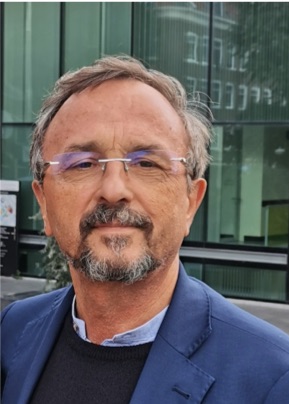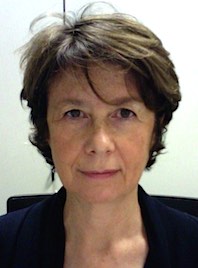Studying at the University of Verona
Here you can find information on the organisational aspects of the Programme, lecture timetables, learning activities and useful contact details for your time at the University, from enrolment to graduation.
Academic calendar
The academic calendar shows the deadlines and scheduled events that are relevant to students, teaching and technical-administrative staff of the University. Public holidays and University closures are also indicated. The academic year normally begins on 1 October each year and ends on 30 September of the following year.
Course calendar
The Academic Calendar sets out the degree programme lecture and exam timetables, as well as the relevant university closure dates..
| Period | From | To |
|---|---|---|
| 1° sem | Oct 4, 2004 | Jan 24, 2005 |
| 2° sem | Mar 1, 2005 | Jun 10, 2005 |
| Period | From | To |
|---|---|---|
| All Saints Day | Nov 1, 2004 | Nov 1, 2004 |
| Immaculate Conception Day | Dec 8, 2004 | Dec 8, 2004 |
| Christmas holidays | Dec 22, 2004 | Jan 6, 2005 |
| Easter holidays | Mar 24, 2005 | Mar 29, 2005 |
| Labour Day | May 1, 2005 | May 1, 2005 |
| Patron Saint's Day S. Zeno | May 21, 2005 | May 21, 2005 |
| The Day of the Republic | Jun 2, 2005 | Jun 2, 2005 |
| Summer holidays | Jul 25, 2005 | Aug 31, 2005 |
Exam calendar
Exam dates and rounds are managed by the relevant Science and Engineering Teaching and Student Services Unit.
To view all the exam sessions available, please use the Exam dashboard on ESSE3.
If you forgot your login details or have problems logging in, please contact the relevant IT HelpDesk, or check the login details recovery web page.
Academic staff
Dal Belin Peruffo Angelo
 angelo.peruffo@univr.it
angelo.peruffo@univr.it
 franco.dellaglio@univr.it
franco.dellaglio@univr.it
Luciani Fabio
Study Plan
The Study Plan includes all modules, teaching and learning activities that each student will need to undertake during their time at the University.
Please select your Study Plan based on your enrollment year.
4° Year activated in the A.Y. 2007/2008
| Modules | Credits | TAF | SSD |
|---|
5° Year activated in the A.Y. 2008/2009
| Modules | Credits | TAF | SSD |
|---|
| Modules | Credits | TAF | SSD |
|---|
| Modules | Credits | TAF | SSD |
|---|
| Modules | Credits | TAF | SSD |
|---|
Legend | Type of training activity (TTA)
TAF (Type of Educational Activity) All courses and activities are classified into different types of educational activities, indicated by a letter.
Proteomics (2007/2008)
The teaching is organized as follows:
Learning outcomes
Module: Teoria
-------
Advanced proteomic: comprehensive program focused on the concepts and technologies for studying the proteome, including the innovative new tools.
Module: Laboratorio
-------
Practical skill in proteome analysis.
Program
Module: Teoria
-------
1. Introduction. The “Omics” sciences. Expressional, Functional, and Structural Proteomics.
2. Chromatographic methods (bi and multi dimensional) applied to proteome analysis. Multidimensional protein identification technology (MudPIT) and MultiDimensional Liquid Chromatography (MDLC).
3. Electrophoretic methods for proteome analysis. Isoelectrofocusing (carrier ampholytes IEF, and immobilized pH gradient, IPG). Polyacrylamide gel electrophoresis, PAGE (SDS-, Native-, and Gradient-PAGE). Two dimensional maps.
4. Sample preparation for proteomic analysis. Cell disruption, removal of interfering substances, protein solubilization, and protein quantification.
5. Pre-fractionation of the sample for the proteome analysis of low abundance proteins. Dynamic range. Differential centrifugation; immunoprecipitation; multi-step extraction of protein; affinity removal (albumin depletion, and Protein Equalizer Technology); and isoelectric focusing based fractionation (Rotofor, and Multi-compartment electrolyzer).
6. Image analysis: PDQuest and other softwares. Comparative proteomic analysis.
7. Mass spectrometry analysis. Mass spectra. Hard (electron impact EI) and soft ionization methods (chemical ionization CI, fast atom bombardment FAB, matrix assisted laser desorption ionization MALDI, and electrospray ionization ESI). Analyzers (magnetic sectors, quadrupole Q, time-of-flight TOF, ion trap IT, and Fourier Transform ion cyclotron resonance FT ICR). Detectors.
8. Tandem mass spectrometry MS/MS. Fragmenting a peptide. Tandem-in-space approach (TripleQ, Q-TOF, and TOF/TOF). Tandem-in-time approach (MALDI-TOF post source decay PSD, and IT).
9. Analysis of mass spectra. Data Base searching softwares and Data Bases for protein identification. Peptide Mass Fingerprinting (PMF), and Tandem MS data.
10. Quantitative proteomic analysis: Difference gel electrophoresis (DIGE), minimal and saturation labeling; stable isotope labeling by amino acid in cell culture (SILAC); isotope coded affinity tags (ICAT); isobaric tags for relative and absolute quantification (iTRAQ); absolute quantification (AQUA); acrylamide d0/d3; enzymatic labeling (H218O/ H216O); label free quantification (surface enhanced laser desorption/ionization SELDI-MS).
11. Post-translational modifications characterization. Glycosylation, nitration and nitrosylation, and phosphorylation. (IMAC; immunoprecipitation; biotin-switch, and other approaches).
12. Applications of proteomic analysis.
Module: Laboratorio
-------
Sample preparation.
Two-dimensional electrophoresis.
Staining protocols.
Image acquisition.
Image analysis.
Cut of the spots and spot preparation for MS analysis.
Protein identification through database searching of MS data.
Examination Methods
Module: Teoria
-------
written
Module: Laboratorio
-------
report
Type D and Type F activities
Modules not yet included
Career prospects
Module/Programme news
News for students
There you will find information, resources and services useful during your time at the University (Student’s exam record, your study plan on ESSE3, Distance Learning courses, university email account, office forms, administrative procedures, etc.). You can log into MyUnivr with your GIA login details: only in this way will you be able to receive notification of all the notices from your teachers and your secretariat via email and soon also via the Univr app.
 045 8027916
045 8027916









